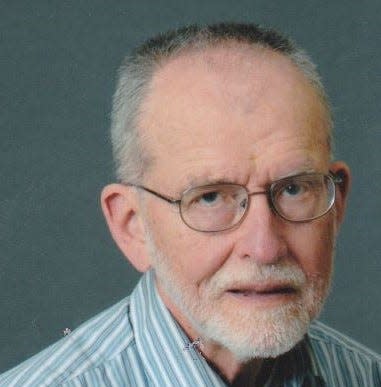Russia’s war against Ukraine illustrates the danger of excess attachment to abstract political goals, no matter how desirable we may consider them.
My first lesson about this danger came as an undergraduate at Willamette University in Salem, Oregon. Political science professor Theodore Shay claimed that Republicans could only win in liberal Portland if they could shut down all telephones there on election day.
Responsible Republicans would vote anyway, he assumed, but many Democrats would only turn out if someone phoned to remind them.


The Republican Party was different back then, and I had inherited enthusiastic support for it from my parents. I figured out an easy way to shut down Portland telephones for the day. (More recent telephone technology would probably prevent my scheme from working now, but I won’t disclose details in case it might still work.)
My enthusiasm evaporated, though, when I thought about the other things shutting down the telephone system would cause. Houses would burn down because no one could phone the fire department. People with medical emergencies would die because no one could call an ambulance.
It would have been irresponsible to carry out my scheme. The damage it would do to real people was obvious. It might have been nice for Republicans to win in Portland, but this rather abstract political goal was not worth killing people and destroying valuable property.
Sixty years later, this lesson has interesting implications for Vladimir Putin and his vicious war against Ukraine.
I don’t think Putin is correct in believing that what is now Ukraine ideally should be part of Russia rather than an independent country. But for purposes of the present discussion, we can assume that he is correct in this belief.


Clearly, everything else being equal, larger political systems are better than smaller ones. The largest possible system, a world government, could maximize freedom to travel without contending with tons of national red tape (passports, visas, currency exchanges, etc.).
A universal government would also maximize opportunities for mutually profitable trade, without arbitrary barriers like quotas and tariffs. And of course many fundamental problems like pandemics and the global environment could be tackled most effectively by a universal regime.
The misery afflicting post-Brexit England, now withdrawn from the European Union, illustrates the economic value of living in bigger political systems.
The theoretical benefits of a larger political system and Putin’s historical arguments about why Ukrainians and Russians should be united are nice, abstract political generalizations, similar to my former belief that Portland, Oregon, would be better off governed by Republicans.
A Republican victory in Portland was not worth burning down houses and killing people. Are Putin’s abstract theoretical or historical advantages worth the thousands of lives, Ukrainian soldiers and civilians and Russian soldiers, currently being slaughtered? Are these theoretical benefits worth the hundreds of billions of property damage caused by the Russian missiles striking Ukrainian cities?
Are they worth the starvation that threatens developing countries because Ukrainian wheat exports were cut off?
Millions of people would be living normal lives if Vladimir Putin had been concerned about the damage that would be caused by his “special military operation.”
Perhaps separate countries for Ukrainians and Russians would not be ideal, but they were not dog meat either, and were obviously good enough. Larger political systems are only ideal everything else being equal, and here that is obviously not the case.
One of the most important concepts in serious political analysis is side effects, and it is irresponsible to take major actions without considering them. As I see it, Putin has been behaving very irresponsibly.
A source of dubious reliability recently reported that Putin had urgently summoned doctors due to “severe nausea.” True or not, severe nausea is exactly what he would be suffering if he gave appropriate weight to the misery his war is causing both Ukrainians and Russians.
— Paul F. deLespinasse is professor emeritus of political science and computer science at Adrian College. He can be reached at pdeles@proaxis.com.
This article originally appeared on The Sault News: Paul deLespinasse: Putin prioritizes abstract political goals over human consequences




